Would you like to learn how to use Zabbix to monitor a TP-LINK Wireless access point? In this tutorial, we are going to show you how to configure the SNMP service on a TP-LINK wireless access point and how to use Zabbix to monitor the wireless access point.
• Zabbix version: 3.4.12
• Access Point Model: TP-LINK WA701ND v2
Hardware List:
The following section presents the list of equipment used to create this Zabbix tutorial.
Every piece of hardware listed above can be found at Amazon website.
Zabbix Playlist:
On this page, we offer quick access to a list of videos related to Zabbix installation.
Don't forget to subscribe to our youtube channel named FKIT.
Zabbix Related Tutorial:
On this page, we offer quick access to a list of tutorials related to Zabbix installation.
Tutorial - SNMP on TP-Link Access Point
First, we need to enable and configure the SNMP service on the TP-LINK access point.
Open a browser software, enter the IP address of your TP-Link access point and access the administrative web interface.
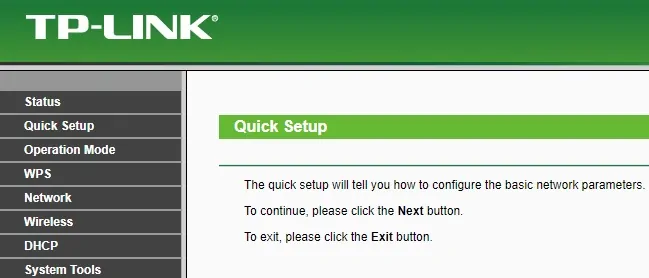
On the prompt screen, enter the administrative login information.
Factory default access information:
• Username: admin
• Password:
After a successful login, the administrative menu will be displayed.
Access the System Tools menu and select the SNMP option.
On the SNMP screen, you need to perform the following configuration.
• Enable the SNMP service.
• Get Community - Configure a Read-only SNMP community.
• Configure your contact information
After finishing your SNMP configuration, click on the Save button.
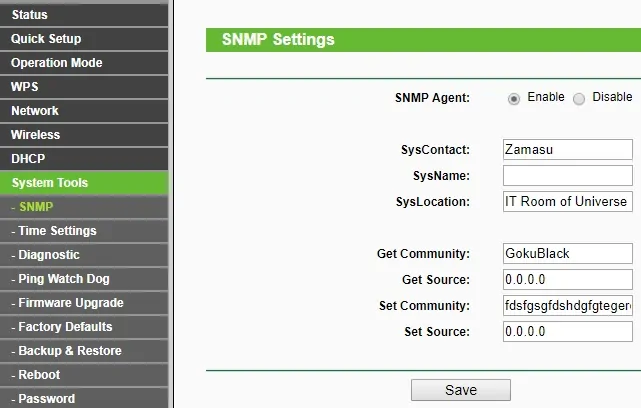
You have successfully configured the TP-Link Access point SNMP service.
Now, let's test the SNMP communication between the Zabbix server and the TP-Link device.
On the Zabbix server console, use the following commands to install and test the SNMP communication.
# apt-get install snmp
# snmpwalk -v2c -c VegetaRocks 192.168.0.200
Here is a small sample of the SNMPWALK output.
iso.3.6.1.2.1.1.1.0 = STRING: "Linux TL-WA701ND 2.6.31--LSDK-9.2.0.312 #1 Mon Mar 24 10:00:47 CST 2014 mips"
iso.3.6.1.2.1.1.2.0 = OID: iso.3.6.1.4.1.8072.3.2.10
iso.3.6.1.2.1.1.3.0 = Timeticks: (6115584) 16:59:15.84
In our example, the Zabbix server used the command SNMPWALK to test the communication.
In our example, the TP-Link interface has the IP address 192.168.0.200.
Congratulations, the SNMP service was configured successfully on the TP-Link device.
Tutorial - Zabbix Monitor TP-Link Access Point
Now, we need to access the Zabbix server dashboard and add the HP Switch as a Host.
Open your browser and enter the IP address of your web server plus /zabbix.
In our example, the following URL was entered in the Browser:
• http://35.162.85.57/zabbix
On the login screen, use the default username and default password.
• Default Username: Admin
• Default Password: zabbix
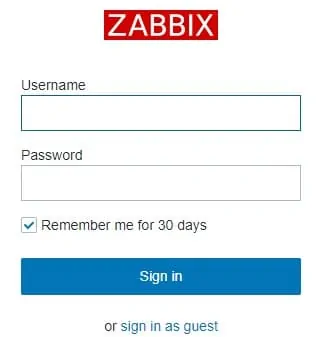
After a successful login, you will be sent to the Zabbix Dashboard.
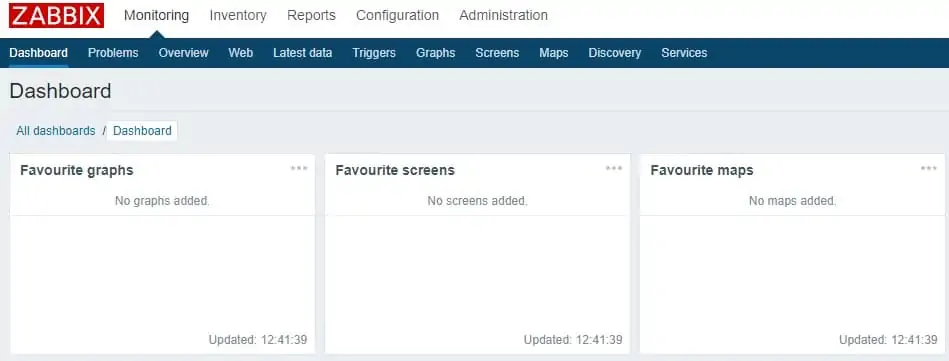
On the dashboard screen, access the Configuration menu and select the Host option.

On the top right of the screen, click on the Create host button.
On the Host configuration screen, you will have to enter the following information:
• Host Name - Enter a Hostname to identify the TPLINK Access point.
• Visible Hostname - Repeat the hostname.
• New group - Enter a name to identify a group of similar devices.
• Agent Interface - Click on the Remove button.
• SNMP Interface - Click on the Add button and enter the IP address of the TPLINK device.
Here is the original image, before our configuration.
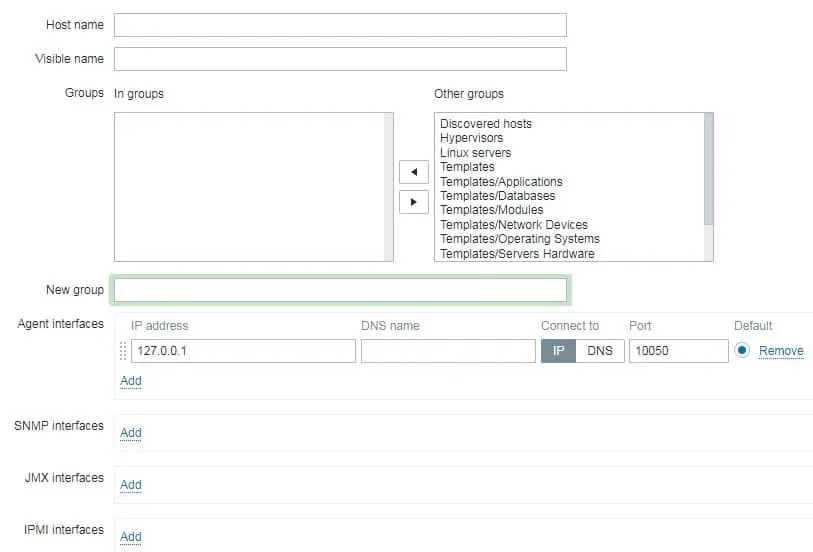
Here is the new image with our configuration.
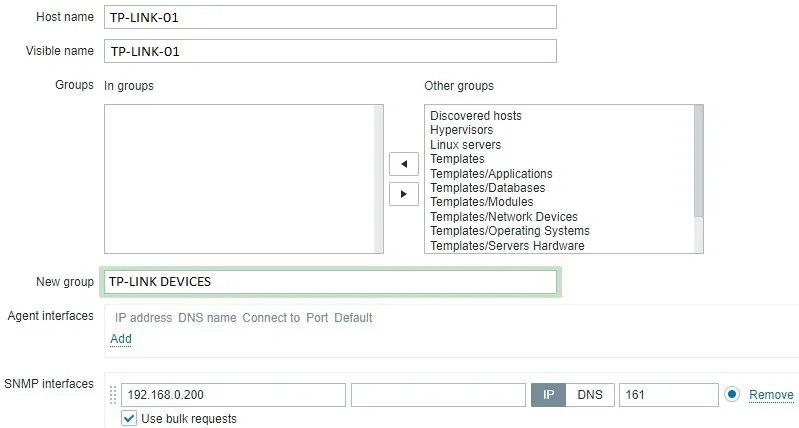
Next, we need to configure the SNMP community that Zabbix will use to connect on the TP-Link device.
Access the Macros tab on the top of the screen.
Create a macro named:
The macro value should be the TPLINK SNMP community.
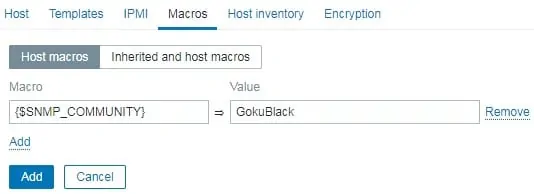
In our example, the value is GokuBlack.
Next, we need to associate the host with a specific network monitor template.
By default, Zabbix comes with a large variety of monitoring templates.
Access the Templates tab on the top of the screen.
Click on the Select button and locate the template named: Template Net TP-LINK SNMPv2

Click on the Add button (1).
Click on the Add button (2).
After a few minutes, you will be able to see the initial result on the Zabbix Dashboard.
The final result will take at least one hour.
By default, Zabbix will wait 1 hour to discover the number of interfaces available on the Access point.
By default, Zabbix will wait 1 hour before collect information from the Access point network interface.
Congratulations! You have configured the Zabbix server to monitor a TP-Link Access point.
